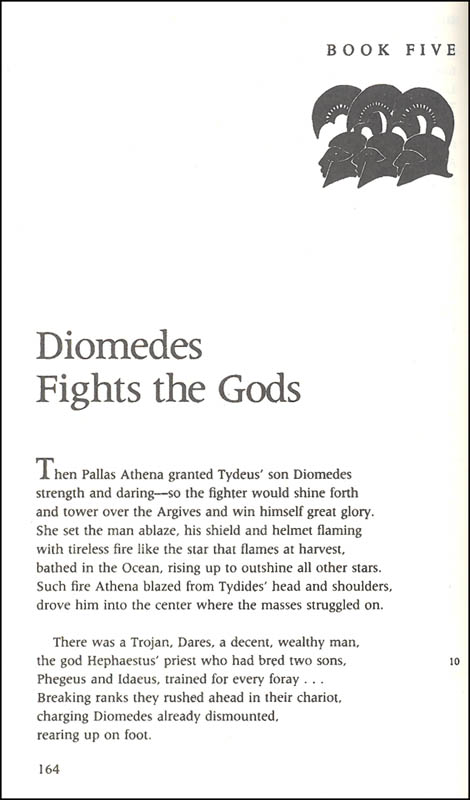

Its poetry lifts even the most devastating human events into the realm of the beautiful, and it shows us how vast and serene the mind can be even when it contemplates the horrors of war’ (xv). His introduction begins: ‘We return to the Iliad because it is one of the monuments of our own magnificence. The second insight concerns the ‘serenity’ of the Iliad ’s author, an idea which pervades Mitchell’s introduction and translation. Achilles will sleep with his beloved Briseïs forever’ ( lii-liii). … Priam will forever sit at the funeral feast eating, drinking, and mourning over his fallen son to his heart’s content. Simply by ending his narrative where he does, excluding the Fall of Troy from his poem, ‘Homer gives Priam and Achilles a reprieve of infinite time. But Homer is resilient in the face of such an oppressive force. Fate … is nothing but the story handed down to Homer, the story he had to tell’ (xxvii). The Trojans couldn’t return Helen because they didn’t return her. First, Mitchell’s simple answer to the vexed question of why the Trojans did not simply return Helen: ‘in the Iliad, story is fate. It cannot hope to compete with Knox’s celebrated introduction, but it does contain some keen insights. Mitchell’s introduction, aimed at a general audience, comprises character studies, a discussion of Homeric warfare as both ‘wretched’ and ‘man-glorying’, brief notes on Homeric concepts of hospitality and honour, an in-depth analysis of Priam’s meeting with Achilles, and various observations on the power of Homer’s poetry.

3īefore discussing these, I address the introduction and ancillary materials, whose format follows that of the Bernard Knox-Robert Fagles Iliad, 4 which remains the benchmark: introduction, pronunciation guide, map, notes to the translation, list of deviations from the Greek text, pronouncing glossary, and bibliography. But despite these impressive credentials, and despite having produced a work that inarguably fulfils three of Matthew Arnold’s four famous criteria for Homeric translation (speed, clarity, and simplicity nobility is the eternally elusive fourth), 2 Mitchell will be criticized by academics for two reasons-the first fair, the second not. His Iliad, already the subject of attention in the popular media, comes with recommendations by James Romm, Sarah Ruden, and Mary Lefkowitz. 1 His critically praised, bestselling translations and adaptations include Gilgamesh, the Bhagavad Gita, the Tao Te Ching, and the Book of Job. Stephen Mitchell is, according the Wall Street Journal (!), a ‘rock star’.


 0 kommentar(er)
0 kommentar(er)
